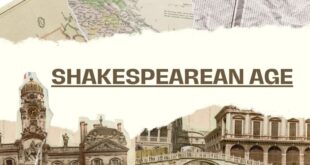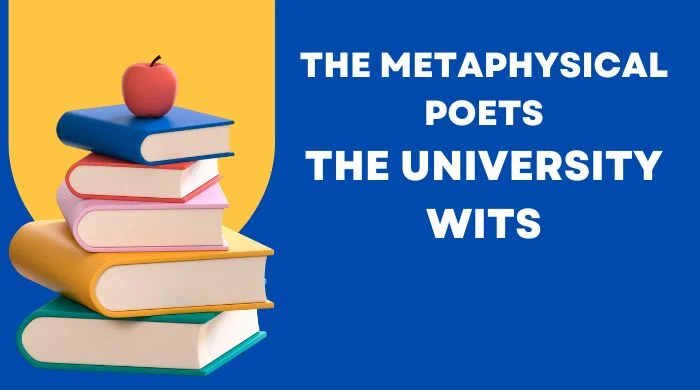Or, what are the chief characteristics of Elizabethan Literature?
The Elizabethan age, which spans the reign of Queen Elizabeth I from 1558 to 1603, was a remarkable era in English history and literature. The social life of England was marked by a strong National spirit, humanity, liberal and religious views, scientific curiosity, social content, intellectual progress, and ultimate enthusiasm. This period is often considered the “Golden Age” of English literature due to the flourishing of creativity, exploration, and cultural achievement. Here, we take a closer look at the characteristics of English Literature during the Elizabethan period.
The Chief Characteristics of the Elizabethan Age and Literature
Inauguration of Every Branch of Literature: The Elizabethan Age is characterized by abundant production in every branch of literature. There was a renaissance of Greek and Roman literature, mythology, and culture. This served as a source of inspiration to the countless writers of the period.
An Unparalleled Inspiration: An unparalleled inspiration started the literary pursuit in this age and thus was born great writers like Shakespeare, Edmund Spenser, Christopher Marlowe, Thomas Wyatt, Sir Philip Sidney, and many more.
Golden Time for Drama: The age of Elizabethan witnessed the rise of drama as the most important literary form. Excellent comedies and serious tragedies were written and staged. The famous plays of this period deal with the universal themes. The playwrights probed deep into the characters’ psychology and revealed inherent human nature. Marlowe’s “Doctor Faustus,” written in 1592 or 1593, and Shakespeare’s “Hamlet,” written between 1599 and 1601, show the sufferings of men for indecision. The themes, characterizations, language, and techniques of the Elizabethan drama touched the topmost height of excellence.
Golden Time for Poetry: Edmund Spenser’s “The Fairy Queen” is one of the greatest poems of English literature. The poem displays Spencer’s wonderful sense of beauty and pictorial power. The quality of pure, essential poetry can be felt on almost every page of this great work. This makes him the poet of the poets.
The other remarkable poets of the Elizabethan age are Thomas Wyatt and Sir Philip Sidney. Wyatt pioneered the introduction of the Petrarchan form in the English sonnet. Sidney’s sonnets were free from the artificiality of conventional political works. His “Astrophil and Stella,” composed in the 1580s, was the first English sonnet sequence. William Shakespeare is one of the greatest Sonnet writers of all time. His sonnets represent his love for natural beauty, vastness, and plenty.
Enrichment of Prose: English prose also found its ground in the Elizabethan age and improved to a great extent. The essay develops from the works of Francis Bacon. Sir Philip Sidney’s “Arcadia”, Thomas More’s “Utopia”, and Thomas Nashe’s “The Unfortunate Traveler” are a few of the famous prose works of this age.
Humanism and Classical Influences: The humanist movement greatly influenced Elizabethan literature, emphasizing the study of classical texts and promoting individual potential. Writers drew inspiration from Greek and Roman literature. They incorporated classical themes and forms into their works.
In conclusion, the Elizabethan age produced a lot of meritorious writers. Those writers enriched every branch of English literature with their contributions. The characteristics of English literature during the Elizabethan period reflect a dynamic and culturally rich era. The Elizabethan age can rightly be called the “Golden Age” of English literature.
Trace the development of English drama with reference to William Shakespeare. [NTRCA-2015]

William Shakespeare (1564-1616) is widely considered to be the greatest writer of the English language and the world’s pre-eminent dramatist. As a dramatist, he is, perhaps, second to none. His plays cast a spell, and triumphs are inspirable connected to his craftsmanship. His work has had a lasting influence on theatre and literature.
The Domestic Potential of Characterization: In particular, he expanded the domestic potential of characterization, plot, language, and genre. His writing has also impacted many notable novelists and poets over the years and continues to impact the new authority even today. Shakespeare is the most quoted writer in the history of the English-speaking world, as many of his quotations have been used daily in English and other languages.
Master of language: Shakespeare contributed to English literature greatly. He wrote 37 plays, including tragedy, comedy, tragi-comedy, and historical plays. his famous plays are “Hamlet,” “Othello,” “King Lear,” “Macbeth,” “Romeo and Juliet,” “The Merchant of Venice,” etc. His works have been a major influence on the subsequent theatre. He transformed English theatre by expanding expectations about what could be accompanied by plot and language.
Integrated characterization with the plot: Shakespeare’s plot is integrated with the character so that, if the main character is any different, the plot changes completely, for example, in plays such as “Hamlet”.
A new style of Drama by Mixing Tragi-comic Elements: In “Romeo and Juliet”, Shakespeare’s blending of tragedy and comedy has created a new romantic-tragedy genre. Earlier, romance was not considered a suitable subject for tragedy, but Shakespeare changed this trend. In King Lear, Shakespeare deliberately uses two plots from different sources. He jokes with spectacular violence to mix comic elements with a serious tragedy.
Self-revelation of the Characters: Shakespeare showed how plays could explore a character’s inner motives and conflicts through his soliloquies. Until Shakespeare, playwrights only used soliloquies to introduce, convey information, and reveal plans. His themes regarding the human condition make him more acclaimed than any of his contemporaries. Humanism and contact with popular thinking gave vitality to his language. He represented English people more concretely, not as puppets. Now, soliloquy is new in the novel, called stream of consciousness.
Versatile Genius: Shakespeare united the three main streams of literature: verse, poetry, and drama. He imparted his eloquence and variety to the versification of the English language, giving the highest expressions with elasticity of language. In his poetry and drama, Shakespeare saved the language from vague and infused actuality and vividness. His works marked the beginning of the modernization of the English language as many Shakespearean words had about 17000 more English words than the contemporary educated person. He has contributed to the standardization of the English language, as many of Shakespeare’s words and phrases have been embedded in the English language. Such as “Be all and End all”.
To calculate, we can say that Shakespeare’s contribution to English drama and literature is priceless.
 Sopner BCS Sopner BCS: We fuel your BCS dreams
Sopner BCS Sopner BCS: We fuel your BCS dreams





One comment
Pingback: Age of Enlightenment in English Literature - Sopner BCS